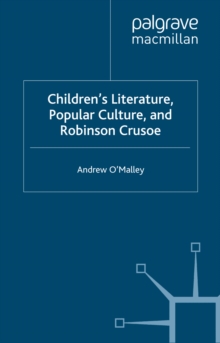
Class, Leisure and National Identity in British Children's Literature, 1918-1950 PDF
by Kenneth A. Loparo
Part of the Critical Approaches to Children's Literature series
Description
In Britain, the years after 1918 witnessed an explosion of interest in the pursuit of leisure, which, after the austerity and restrictions of the First World War, was increasingly viewed as a right for all.
With limited resources, particularly of space, the provision for, and impact of leisure became highly contested subjects.
Focusing on hiking, camping and sailing stories, Class, Leisure and National Identity in British Children's Literature, 1918 - 1950 challenges and explores the popular suggestion that these books were merely escapist and demonstrates the continued importance of maritime Britain in children's literature. Drawing from an extensive range of children's books - from the ephemeral to the well-known novels of Arthur Ransome - this book places children's literature at the forefront of the struggle to shape readers' understanding of the countryside as a place of quietude, whilst rejecting the claims of mass tourism.
As such, it situates children's literature at the centre of a range of complex arguments about the politics of leisure, class and national identity.
Information
-
Download - Immediately Available
- Format:PDF
- Pages:224 pages
- Publisher:Palgrave Macmillan
- Publication Date:08/10/2014
- Category:
- ISBN:9781137407436
Other Formats
- Paperback / softback from £44.99
Information
-
Download - Immediately Available
- Format:PDF
- Pages:224 pages
- Publisher:Palgrave Macmillan
- Publication Date:08/10/2014
- Category:
- ISBN:9781137407436










